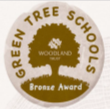Sustainability
Sustainability & Climate Action at Earlsmead Primary
Our Vision
At Earlsmead Primary School, our vision is to nurture a generation of environmentally conscious learners who actively care for their planet, lead sustainable lives, and inspire change in their communities. We aim to be a beacon of sustainability—where pupils learn through nature, staff lead by example, and our school grounds reflect our commitment to a greener future.
“We don’t inherit the Earth from our ancestors, we borrow it from our children.”
Why We Have This Plan
In response to the Department for Education’s Sustainability and Climate Change Strategy, all schools in England are expected to develop a Climate Action Plan. This is part of the UK’s commitment to becoming a world-leading education sector in sustainability by 2030.
Schools play a vital role in:
- Tackling climate change through education and action.
- Creating greener environments.
- Inspiring communities to adopt sustainable practices.
Our ECO Team
Our goal is to cultivate sustainable habits in students, staff, and the wider community. To support this, we are forming an ECO Team that includes pupils and staff. This team will help drive our initiatives and ensure that sustainability is embedded across all aspects of school life.
🎯 Key Goals:
- Reduce the school’s carbon footprint.
- Educate the school community on sustainability.
- Conserve energy and water.
- Promote recycling and waste reduction.
- Create a green environment through tree planting and school gardens.
Strategic Priorities & Actions
♻️ Priority 1: Reduce Waste & Increase Recycling
Why it matters: Reducing waste conserves resources and teaches pupils responsibility.
Actions:
- Introduce recycling stations across the school (classrooms and outdoor areas)
- Launch ‘Waste-Free Days’ where possible.
- Partner with local organisations for recycling.
Staff Leads:
- Eco-Coordinator: Leads pupil eco-team and evaluate action plan.
- Site Team: Ensures proper waste segregation and collection.
🌳 Priority 2: Develop a Greener & More Natural Outdoor Environment
Why it matters: Connecting children with nature improves wellbeing and supports biodiversity.
Actions:
- Create a school garden with pollinator-friendly plants.
- Plant trees and develop shaded learning areas.
- Build wildlife habitats (bug hotels, bird boxes).
- Use outdoor spaces for science, geography, and art lessons.
Staff Leads:
- Science Lead: Integrates biodiversity into the curriculum. Runs a gardening club for at least one term.
- Teaching Staffs: Support garden activities and incorporate outdoor learning into planning.
Priority 3: Reduce Our Carbon Footprint – Focus on Transportation
Why it matters: Transport is a major contributor to carbon emissions. Encouraging sustainable travel helps reduce our environmental impact.
Actions:
- Promote walking, cycling, and scooting to school.
Staff Leads:
- Organise ‘Walk to School’ weeks and car-free days.
- Survey families on travel habits and explore safe travel routes.
📊 Monitoring & Evaluation
We are committed to tracking progress and celebrating success. Our efforts will be reviewed through:
- Termly reviews by the ECO Team and Subject Leads.
- A sustainability update shared with governors and families.
- Pupil surveys to assess engagement and learning impact.










